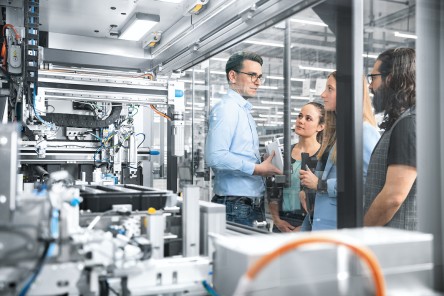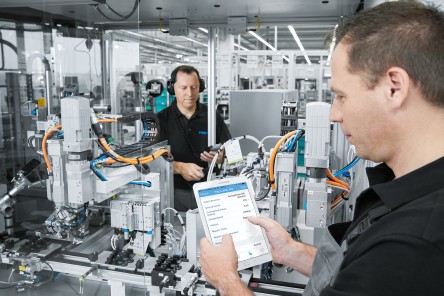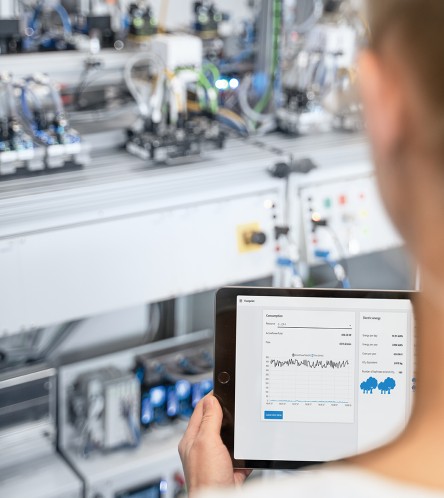Industrial production accounts for over half of the world’s energy consumption—an increasing and disproportional use of energy that is not sustainable and highlights the urgency of low-carbon green manufacturing. The solution is a holistic transformation of conventional production at all levels and across the entire value chain. Products, processes, and systems must be optimized in alignment with technological capabilities for sustainable production.
Why sustainable manufacturing?
Climate change and the accompanying social and political push to reduce carbon emissions, as well as skyrocketing energy prices, create incentives for companies to strive for more sustainability in production. Companies that reduce energy consumption and waste, and reduce their carbon footprint, not only live up to their corporate social responsibility, but also take the first steps toward a circular economy. Additionally, implementing sustainable manufacturing practices ensures compliance with sustainability legislation and creates long-term opportunities for increased profitability and competitive advantage.

The human factor in sustainable manufacturing
Selecting, applying, adapting, or developing the corresponding structural and technological tools and engaging in smart manufacturing practices is only half the story. The other half is human resources: the workers. Workers with the right skills are critical to reducing the CO2 footprint and transitioning to sustainable production processes. We support you in qualifying current and upcoming generations of employees to tackle the challenges of modern, resource-efficient manufacturing.
A bright future for green manufacturing experts: sustainable manufacturing jobs
Industry employees with specialized knowledge and well-rounded fundamental capabilities are indispensable for leveraging the full potential of overall sustainable manufacturing. Energy management skills are interdisciplinary, so various training profiles—like the classic Electronics Technician or Electrical Engineer—are further enriched by sustainability-related competencies. Beyond these wide-ranging green skills needs, the labor market is also seeing an increase in diverse, yet specific, energy efficiency-related job profiles ranging from Energy Engineers and Energy Auditors to Sustainability Managers, Greenhouse Gas Report Verifiers, and Carbon Capture Installers, to name only a few. Well-trained energy efficiency and environmental experts have excellent career opportunities, and the trend is rising.

Fostering relevant skills for energy-efficient production
To drive down energy consumption, current and future employees must first develop an awareness of resource waste along the entire supply chain. To effectively contribute to more sustainable production and decarbonization, they must then understand energy flows, key figures, and load profiles, which will aid in selecting and applying optimization strategies for sustainable action as well as identifying, planning, implementing, and evaluating efficiency measures. Therefore, being able to quantify and monitor energy and compressed air consumption, costs, and emissions of resources is a must. Acquiring all these competencies allows learners to identify and reduce leakage, as well as to decrease electrical power consumption, ultimately leading to more sustainable manufacturing practices and achieving long-term sustainability goals.

Learning solutions for developing sustainable manufacturing skills
Combining the right vocational education and training learning solutions with industrial workforce development prepares future workers to take the blue path to higher efficiency. The core of our learning solutions is always to provide you with tangible, practical learning experiences that prioritize the awareness and recognition of sustainability issues in production environments. Therefore, we develop digitalization-based production improvement and optimization use cases. These use cases range from smart measurements via industrial ethernet-based protocols to server-based data storage, including production system intelligent control mechanisms, to server- or cloud-based visualization. By applying universal principles, like the continuous improvement process, we ensure that knowledge can be transferred to future applications.